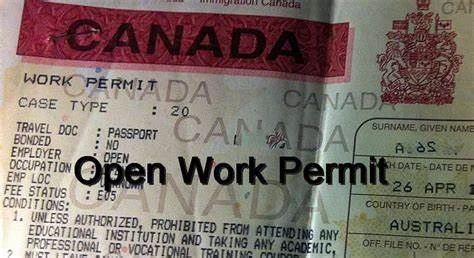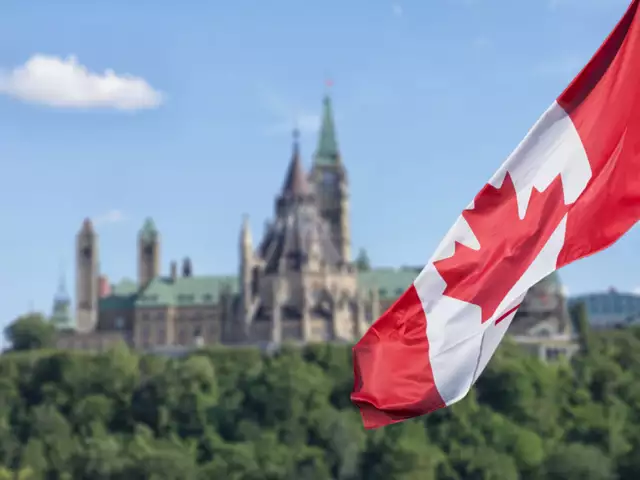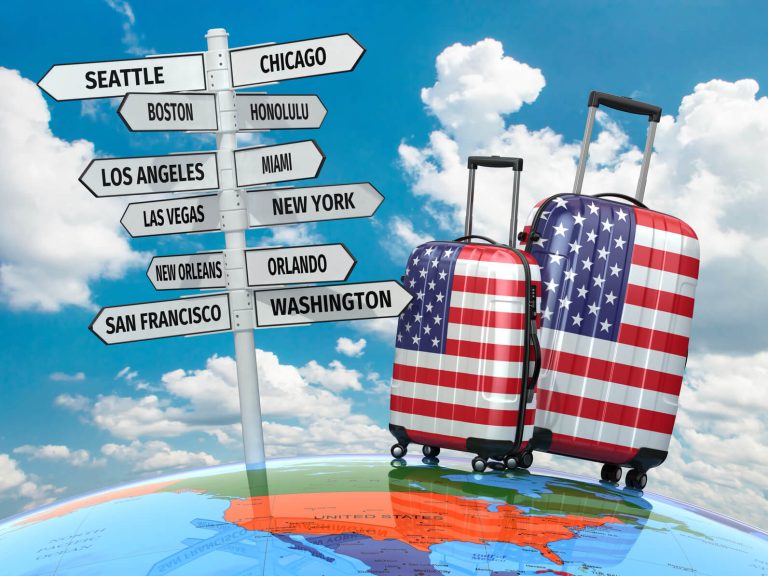The Cost of Relocating to Canada For Immigrants and Students
Canada, often hailed for its stunning landscapes, diverse culture, and high quality of life, has been a sought-after destination for people looking to relocate. Whether you’re motivated by personal, career, or lifestyle reasons, moving to Canada is a significant decision that comes with a substantial financial commitment. In this blog post, we’ll delve into the details of the cost of relocating to Canada. From immigration fees to the price of housing, education, and daily expenses, we’ll provide an in-depth look at what you need to consider when planning your move to the Great White North.
Advertisements
Immigration and Visa Costs to Canada
One of the initial costs you’ll encounter when moving to Canada is the immigration and visa fees. The Canadian government charges various fees depending on the type of visa or immigration program you are applying for. Some common fees include:
- Express Entry: For skilled workers applying through the Express Entry system, the processing fee for the main applicant is around CAD 825, with additional fees for accompanying family members.
- Provincial Nominee Program (PNP): If you’re nominated by a specific province or territory, there may be additional fees ranging from CAD 250 to CAD 1,000, depending on the province.
- Study Permit: International students may need to pay around CAD 150 for a study permit.
- Family Sponsorship: If you’re sponsoring a family member, the fees can vary, but for spousal or common-law partner sponsorship, it’s typically CAD 1,050.
Housing Costs in Canada
Once you’ve secured your visa and arrived in Canada, you’ll need a place to live. Housing costs can vary significantly across provinces and cities. In major cities like Toronto, Vancouver, and Montreal, the cost of housing is notably higher than in smaller towns or rural areas. Here’s what you need to know about housing costs:
- Renting: Monthly rental costs for a one-bedroom apartment in a major city can range from CAD 1,500 to CAD 3,000 or more. Smaller cities and towns offer more affordable options, but prices have been steadily increasing in recent years.
- Homeownership: If you plan to purchase a home, be prepared to spend anywhere from CAD 500,000 to several million dollars in major cities. The cost of a house depends on its size, location, and housing market conditions.
Education Expenses in Canada
If you have children or are planning to pursue higher education in Canada, education expenses are a significant consideration:
- Public Schools: Education is the responsibility of each province, and public school fees may be waived or subsidized for residents, but not for temporary residents or international students. Private schools, however, charge tuition fees, which can range from CAD 10,000 to CAD 30,000 or more per year.
- Higher Education: Tuition fees for international students pursuing undergraduate or postgraduate degrees can vary depending on the university and program. On average, expect to pay between CAD 15,000 to CAD 35,000 annually, excluding additional expenses like textbooks, supplies, and accommodation.
Healthcare Costs in Canada
Canada has a publicly funded healthcare system, but there are costs associated with it:
Advertisements
- Provincial Health Insurance: Every province in Canada has its own health insurance plan. The cost for this insurance varies by province and your individual circumstances. It is often included in your taxes, but some provinces require monthly premiums.
- Private Health Insurance: Many residents opt for private health insurance to cover services not included in the public system, such as prescription drugs, dental care, and vision. Costs can range from CAD 50 to CAD 150 per month.
Transportation Expenses in Canada
Canada is a vast country, and transportation costs can add up:
- Owning a Car: If you choose to own a car, consider expenses like car payments, insurance, fuel, and maintenance. On average, these costs can amount to CAD 8,000 to CAD 10,000 annually.
- Public Transportation: In cities with efficient public transportation systems like Toronto and Vancouver, monthly passes can range from CAD 100 to CAD 150. However, in smaller towns or rural areas, you might need to rely on your vehicle more.
Cost of Living in Canada
The general cost of living in Canada varies by location, with major cities being more expensive than smaller communities. Here’s a breakdown of typical monthly expenses:
- Groceries: For a family of four, monthly groceries can cost around CAD 500 to CAD 800, depending on your eating habits and location.
- Utilities: Expect to pay around CAD 100 to CAD 150 for utilities like electricity, heating, cooling, water, and internet.
- Entertainment: A night out at a restaurant can cost CAD 50 to CAD 100 per person, while movie tickets are around CAD 10 to CAD 15 each.
- Clothing: Budget around CAD 50 to CAD 100 per month for clothing, depending on your style and shopping habits.
Conclusion
Relocating to Canada is an exciting endeavor, but it’s crucial to be financially prepared for the journey. This blog post has provided a comprehensive overview of the various costs associated with moving to Canada, including immigration and visa fees, housing expenses, education costs, healthcare, transportation, and the general cost of living. By carefully considering and planning for these expenses, you can make a smoother transition to the Great White North and fully enjoy the many opportunities and experiences it offers.
Remember, while the financial commitment may be substantial, the rewards of living in Canada can be immeasurable.
Advertisements
Advertisements







